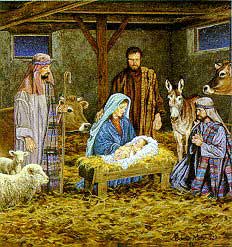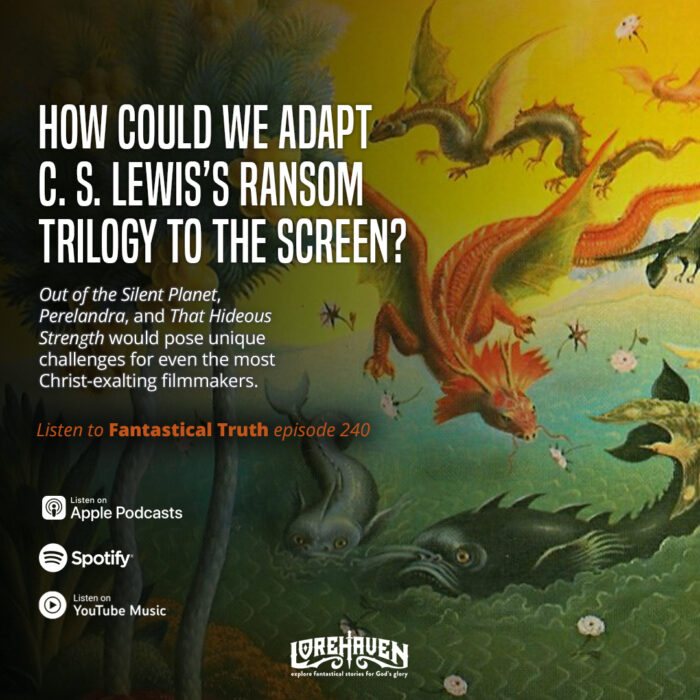Speculative Or True?

It’s Christmas, or nearly so, and naturally my focus turns to the Christmas story. The true, Biblical story. I understand that many people in the world look at the accounts recorded in Luke 1 and 2 and Matthew 1 and 2 as myth. And with good reason. Those passages read like speculative fiction.
I suppose a good number of other passages in the Bible also read like speculative literature, but the Christmas story seems to have compacted a number of speculative tropes. There are several angelic visitations, for example. Joseph had a conversation with an angel, and so did Mary. But before them was Zacharias, John the Baptist’s dad, and his encounter with the angel of God in the temple. Most dramatic, and perhaps most well know, was the visitation of the shepherds, first by a single angel, then by “a multitude of the heavenly host.”
Dreams come into play in the Christmas story as well. Joseph’s encounter with the angel was apparently in a dream, but there was a second dream that apparently saved Jesus’s life. When the wisemen snubbed Herod and didn’t return to Jerusalem to tell him where the Christ child was, he sent a military force to kill all the babies, two years old and younger, in the environs of Bethlehem. Jesus would have been swept up in that infanticide, but for Joseph’s dream that he should take his little family and escape to Egypt.
Speaking of wisemen, their part in the Christmas story is also mysteriously speculative. Wisemen is probably a more palatable term than magicians in this day and age, but they were magi—people schooled in reading the heavens as if the story of humankind has been written in the stars. Hence, afar off in their eastern home, they looked into the night sky and saw a star that told them a king was born in Judea.
Again, undoubtedly by way of erasing some of mysterious from the story, songs and paintings and retellings portray this star as particularly bright. But nowhere in Scripture is such an idea presented. In fact, if the star had been bright, it seems likely that many more people, not just the magi, would have found Jesus.
But there’s more amazing things about this star. First, the wisemen didn’t follow it to Jerusalem where they encountered King Herod. They simply saw the star and proceeded to the most logical place where a king would be born—the seat of power of that country. But not finding him there, they left and the star appeared again. Just appeared. One night it wasn’t there, the next it was. And this time it moved at a perceptible rate so they could follow it. And then it stopped. Right over the house where, by this time, Jesus was.
Mysterious? Magical? Miraculous? Whatever you want to call it, it has the ring of speculative fiction.
But that’s not the half of it. Remember those wisemen? When they, in bafflement, prodded King Herod about the newborn king they expected to find in his palace, he turned to the chief priests and scribes who in turn went to Scripture. They quoted to Herod a version of Micah 5:2.
But as for you, Bethlehem Ephrathah,
Too little to be among the clans of Judah,
From you One will go forth for Me to be ruler in Israel.
His goings forth are from long ago,
From the days of eternity.”
Prophecy, then, also played a part in the Christmas story. Specifically the angel who appeared to the nameless shepherds predicted where they could find the Christ Child—in Bethlehem—and under what conditions they’d find him—wrapped in cloths and lying in a feeding trough. As odd as it sounded, those men acted on what they’d been told and went to Bethlehem where they found Jesus just as the angel had said.
Of course, the bulk of prophecy connected to the Christmas story comes from the Old Testament, not the least of which is Isaiah 7:14:
Therefore the Lord Himself will give you a sign: Behold, a virgin will be with child and bear a son, and she will call His name Immanuel.
Virgin. A woman who had not had sex. And she was pregnant.
Of course Zacharias’s wife Elizabeth was barren and she was also pregnant—with John the Baptist, as it turned out.
This impossible pregnancy was the announcement the angel had given Zacharias in the temple—the announcement he didn’t really believe. Consequently the angel gave him a sign, too, to convince him this birth was a miraculous movement of God. Zacharias would not be able to speak until John was born.
Sure enough, when he came out of the temple, he was unable to tell anyone about the message he had received from the angel. But nine months later, when he wrote that his newborn son’s name was John, his tongue was loosed and he could speak again.
A barren woman, pregnant. A virgin, pregnant. A healthy man, mute. These physical impossibilities were perhaps the greatest elements that seemed speculative in the entire story. But there were neighbors and family members and town gossips who witnessed each one.
Undoubtedly a number of people thought Mary was simply a sinner who had engaged in premarital sex, possibly with Joseph, but perhaps with some mysterious lover they didn’t know about. So they could explain away the impossibility of Jesus’s conception by their own imagination and suspicions.
But what were they to do about Elizabeth? Or Zacharias? How many years had they lived as a childless couple? Long enough to provoke his own doubt. And there was no hiding Zacharias’s inability to speak. As the priest he was to come out of the temple and bless the people. But he couldn’t do it. His public incapacity to speak was not something he could hide. Nor was the immediate restoration of his speech.
 There’s more: Simeon, speaking prophecy over baby Jesus when his parents brought Him to be circumcised. John the Baptist, yet unnamed, jumping in his mother’s womb at the sound of the just-pregnant Mary’s voice. Elizabeth, blessing Mary because she “believed that there would be a fulfillment of what had been spoken to her by the Lord,” though apparently Mary had yet to tell Elizabeth about the angel and his message.
There’s more: Simeon, speaking prophecy over baby Jesus when his parents brought Him to be circumcised. John the Baptist, yet unnamed, jumping in his mother’s womb at the sound of the just-pregnant Mary’s voice. Elizabeth, blessing Mary because she “believed that there would be a fulfillment of what had been spoken to her by the Lord,” though apparently Mary had yet to tell Elizabeth about the angel and his message.
Yep, speculative fiction, for sure. Except for one key point which has to do with God and His nature. The angel said it to Mary:
For nothing will be impossible with God. (Luke 1:37)
If nothing is impossible with God, then all the mysterious, “magical,” miraculous events were His doing, and they really happened. The Christmas story might read like speculative fiction, but it is far better because it is true.
Wishing you all a Merry Christmas!
This post is an edited version of an article published here in December, 2016.













































Angelic visitations became tropes in speculative fiction of our times mainly because it was mentioned in the Bible–in other words, I don’t think the Bible itself can be seen as using speculative tropes that it isn’t copying from any form of speculative fiction. Hope that makes sense.
Definitely makes sense, Travis. I didn’t mean to imply that the Bible was copying. I mean it came first and it is true. What authors who use supernatural elements now do is either fit their angelic/demonic characters into the parameters of the real beings described in the Bible, or they completely make them up. Like Touched by an Angel did or Highway to Heaven.
What’s interesting is, I saw a new thing again today in going over Luke 2: nothing there about the angels flying. The first angel stood before the shepherds. One minute he wasn’t there, the next he was. And the host of angels “suddenly appeared.” I think it’s closes to Jesus appearing to the disciples in their locked room. Now when the angels departed, they went into heaven, so that gives us the impression that they went “up.” Hence the idea of flying, I supposed. But that’s speculation on our part. They clearly aren’t limited to our flesh and blood way of doing things.
Have a great Christmas!
Becky